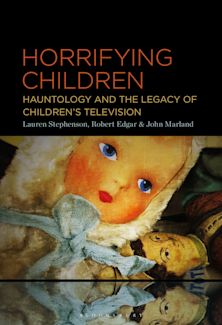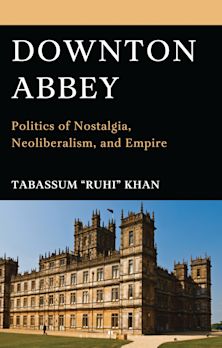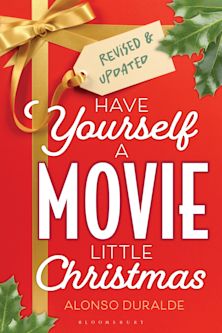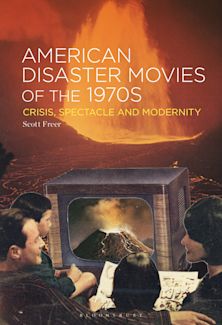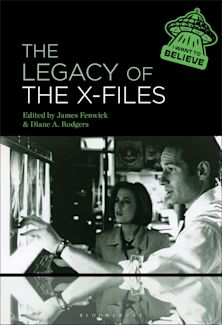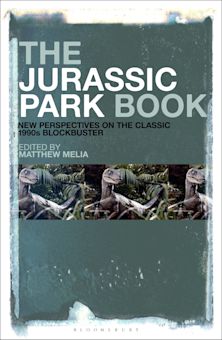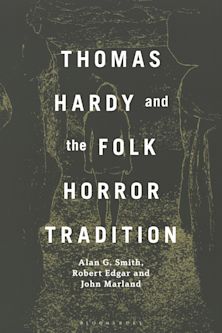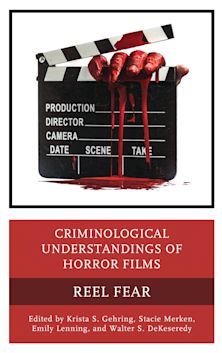- Home
- ACADEMIC
- Film & Media
- Film Genre
- Post-9/11 Horror in American Cinema
You must sign in to add this item to your wishlist. Please sign in or create an account
Description
Post-9/11 Horror in American Cinema illustrates how contemporary horror films explore visceral and emotional reactions to the attacks and how they underpin audiences' ongoing fears about their safety. It examines how scary movies have changed as a result of 9/11 and, conversely, how horror films construct and give meaning to the event in a way that other genres do not. Considering films such as Quarantine, Cloverfield, Hostel and the Saw series, Wetmore examines the transformations in horror cinema since 9/11 and considers not merely how the tropes have changed, but how our understanding of horror itself has changed.
Table of Contents
Introduction: Terror and Horror
Chapter One: 9/11 as Horror
Cloverfield vs War of the Worlds
Chapter Two: Documenting the Horror
Cloverfield, Diary of the Dead, REC, Quarantine, Paranormal Activity
Chapter Three: "Because you were home": Anonymous and Random Death
The Strangers Chapter Four: "Torture Porn" and What It Means to Be American
Saw and Hostel
Chapter Five: Hopeless Bleak Despair
The Mist Chapter Six: Fear of Religion
End of the Line, House of the Devil and The Last Exorcism
Chapter Seven: Horrific Nostalgia: Remaking the Slasher Film
Conclusion
Bibliography and Filmography
Index
Product details
| Published | Mar 22 2012 |
|---|---|
| Format | Ebook (Epub & Mobi) |
| Edition | 1st |
| Extent | 248 |
| ISBN | 9781441103963 |
| Imprint | Continuum |
| Illustrations | 18 |
| Publisher | Bloomsbury Publishing |
About the contributors
Reviews
-
This provocative and engaging study maps the transformation of the horror genre in the aftermath of 9/11, arguing that the hopelessness characterizing contemporary horror reflects the psychological and social impact of terrorism on American culture. Wetmore makes important links between the fear of terrorism and horror films, and he demonstrates-quite compellingly-that the horror genre has been one of the most effective tools for making sense of real terror. --Thomas Fahy, editor of The Philosophy of Horror and author of Sleepless and The Unspoken
-
On 9/11, horror unfolded in real life. Kevin Wetmore shows how its fallout infused the horror genre in cinema. His writing is clear, sharp and passionate. His book will appeal to fans of the horror film and to everyone interested in contemporary culture and its connections with historical trauma. -Stephen Prince, author of Firestorm: American Film in the Age of Terrorism
-
Post-9/11 Horror in American Cinema is a pleasure to read. Lively and astute, this wide-ranging survey of the recent horror film landscape demonstrates how the genre has changed after 9/11, both thematically and stylistically, to better echo our collective memory of an experience that continues to haunt us. Laden with visual and experiential references to 9/11, horror films represent trauma in box-office friendly fashion to echo our fears and ambivalence about torture, chaos, violence, and death. Rich with close film readings, this book will appeal to horror fans and film students alike. -- Isabel C. Pinedo, author of Recreational Terror: Women and the Pleasures of Horror Film Viewing, Film and Media, Hunter College CUNY
-
Kevin Wetmore argues that emotional responses to the event and its cultural aftermath are best captured by horror movies, as this genre sets out to create fear in its audience, just as terrorist attacks do.
Lynne Hibberd is lecturer in media, communication and cultures at Leeds Metropolitan University, Times Higher Education Textbook Guide
-
Post-9/11 Horror in American Cinema is a well-argued and researched investigation into the extreme trends of the genre. For both the connoisseur of horror and the academic, it presents an interesting vivisection of America's popculture response to a national trauma.
Media International Australia
-
Post 9/11 Horror in American Cinema is a fascinating read that deconstructs the changes, both major and minor, in horror films since 2001. The author's theories are thought-provoking, well-supported by citation, and disturbing in an intellectually attractive way. While it tackles the subject from an academic perspective, the writing is extremely accessible. I highly recommend the book.
David Indish, Bricks of the Dead

ONLINE RESOURCES
Bloomsbury Collections
This book is available on Bloomsbury Collections where your library has access.











